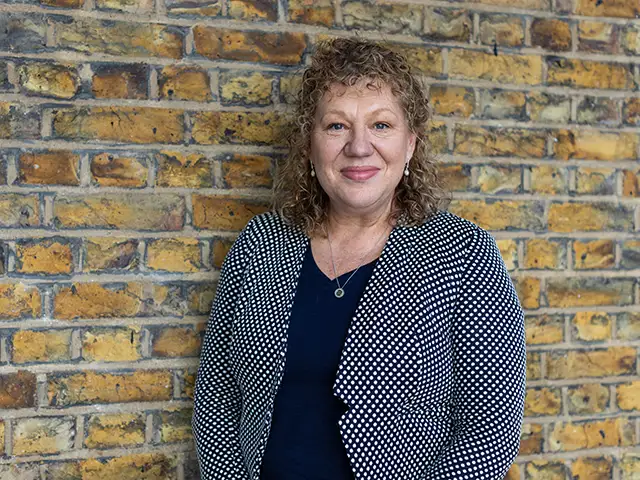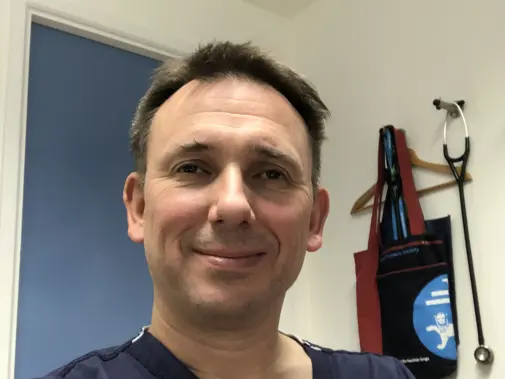Support quality, independent, local journalism…that matters
From just £1 a month you can help fund our work – and use our website without adverts. Become a member today

Unions representing NHS doctors and nurses have jointly launched a campaign to end ‘corridor care’ in Welsh hospitals.
The Welsh arms of the British Medical Association and the Royal College of Nursing want the public to sign a Senedd petition urging the Welsh Government to end the treatment of patients in corridors, chairs, waiting areas and all other inappropriate areas.
The unions have said the practice was putting patients at risk of significant harm.
They say reports from their members are backed up by a recent survey from the Royal College of Emergency Medicine.
This showed that in the first three months of this year, every Accident and Emergency department in Wales recorded seeing patients in “unsafe, inappropriate spaces with almost half of patients waiting for an inpatient bed”.
What doctors and nurses have to say on corridor care
“I have seen patients where diagnoses have been missed due to inadequate places to examine them.”
“Multiple patients with severe injuries to bones are sitting in chairs waiting for beds for 48 to 72 hours in best case scenario.”
“I routinely see patients on the back of an ambulance, patients whose treatments are delayed due to no beds or cardiac monitoring spaces.”
“I’ve had patients discharge against medical advice as they can’t stand to stay in a chair any longer.”
“I routinely look after older people who are not given a bed in a timely fashion. I see pressure area damage from time in chairs and on ambulances.”
“There are patients who are damaged by this that never go home because they deteriorate so much during their corridor care.”
“Patients who are in the waiting room or in the corridor often don’t have access to basic facilities such as water, food and toilet access. This is particularly problematic for frail elderly patients or those with dementia.”
“We regularly have patients on cardiac monitors in chairs in corridors. It’s a regular occurrence for patients to have seizures on chairs.”
“An elderly gentleman had had a stroke but was placed on a chair in a waiting room where he waited, on a chair, for hours. It was very chaotic. We didn’t have a bed in our area. I speak to colleagues across Wales and we’re all in the same boat.”
“A patient was sat in a waiting room, when they should have been on a bed. They collapsed and died in the waiting room. Unfortunately, this is not something that’s uncommon.”
“We visited [a ward where staff] have to give the senior nurses names of patients on a daily basis that they think are suitable to be moved to a corridor space within the hospital to allow for another patient to come into their area.”
“Community hospitals used a dining area for patient care – these areas have no piped oxygen or suction.”
The petition calls on the Welsh Government to take urgent action to:
- To report instances where patients receive care in a chair for longer than 24 hours – something classed as a “never event”.
- Pause cuts to the number of hospital beds and review capacity to plan for future demand.
- Invest further in community-based care such as district nurses and general practice.
- Prioritise prevention and early intervention to ease pressure on A&E.

Helen Whyley, Executive Director of RCN Wales said: “We are beyond breaking point. I have travelled across Wales and witnessed people in pain, confused and frightened, with no privacy, no dignity, and no proper care environment.
“Treating patients in corridors and other inappropriate areas is not nursing – it is crisis management in a system that is failing.
“Corridor care is unsafe, undignified, and unacceptable.”

Stephen Kelly, chair of the BMA’s Welsh Consultants Committee said: “When a patient is not placed in a bed space there’s a chance something vital may be missed. There’s no access to monitoring equipment and no privacy to carry out certain procedures.
“This is dangerous and is putting patients’ lives at risk, we urge the Welsh Government to work with us to put a stop to this practice.
“We’re extremely concerned that the ‘normalising’ of seeing patients in completely inappropriate spaces will mean that patients come to significant harm which is hugely distressing for patients but also NHS staff.”
In a statement, a Welsh Government spokesperson said: “We do not endorse routine care in non-clinical environments where patient privacy or dignity is compromised. However, there are occasions when the NHS faces exceptional pressures during high demand periods.
“Never events are recorded in the NHS as wholly preventable medical errors with the potential to cause serious harm, therefore the call to classify care for patients in chairs for more than 24 hours as a ‘never event’ does not meet the criteria, given the complex nature of causes.
“We’ve provided £200m additional funding this year to improve home care and hospital discharge timelines to address these challenges, which are not unique to Wales.”
Support quality, independent, local journalism…that matters
From just £1 a month you can help fund our work – and use our website without adverts.
Become a member today
